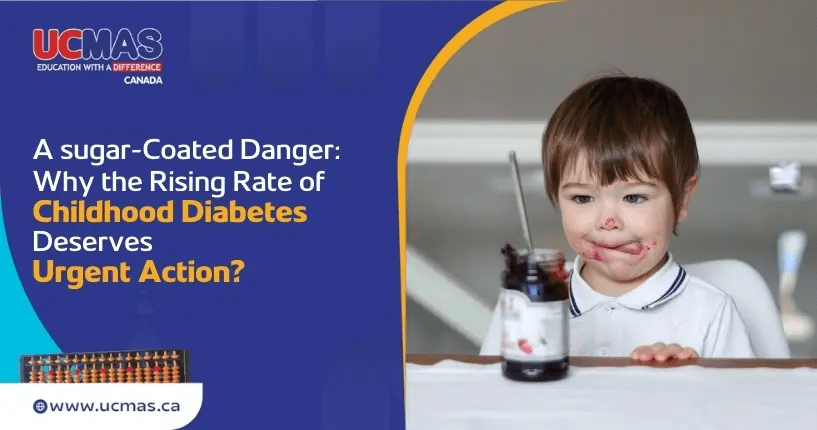
Diabetes has become a significant health concern globally, with more than 537 million people currently living with the condition, a number projected to exceed 700 million by 2045 if effective measures aren’t taken. World Diabetes Day is a reminder of our responsibility to spread awareness, drive prevention initiatives, and push for better healthcare solutions to combat this ever-growing issue.
A Growing Concern: Diabetes in Children

While diabetes has traditionally been viewed as a condition affecting adults, recent statistics show a troubling increase in cases among children. Type 1 diabetes, an autoimmune form where the body attacks insulin-producing cells, has long been a concern for young people.
However, Type 2 diabetes, commonly associated with lifestyle factors, is becoming more prevalent in children as well, largely due to rising obesity rates and sedentary lifestyles.
According to the International Diabetes Federation (IDF), the number of children and adolescents under 20 living with Type 1 diabetes reached 1.2 million in 2021, and the numbers continue to rise. Meanwhile, the rates of Type 2 diabetes among youth are also growing, particularly in regions where obesity is increasingly common.
Shocking Facts About Childhood Diabetes
- Surge in Type 2 Diabetes: Historically rare in young people, Type 2 diabetes is now appearing with alarming frequency. In the United States alone, Type 2 diabetes in children and adolescents has increased by 95% from 2001 to 2017. Rising rates of childhood obesity play a critical role in this trend, and these early diagnoses place children at a higher risk of complications later in life.
- Impact on Life Expectancy: Children diagnosed with diabetes face a lifetime of health challenges. Studies show that Type 1 and Type 2 diabetes can shorten life expectancy if not properly managed. Due to the potential for long-term complications, early-onset diabetes increases the risk of heart disease, kidney failure, and vision loss over time.
- Rising Cost of Care: Diabetes is a costly condition, requiring ongoing monitoring and management, especially for children. According to the American Diabetes Association, people diagnosed with diabetes incur approximately 2.3 times the medical expenses compared to those without the disease. For families, these costs represent a significant financial burden. Access to affordable insulin and diabetes supplies is essential, as, without these, children are at risk of life-threatening complications.
How to Address Childhood Diabetes
The rising prevalence of diabetes among children highlights the need for comprehensive prevention and management strategies. Here are some ways to reduce the risk and support children diagnosed with the condition:

- Promoting Healthy Diets: A balanced, nutrient-rich diet can significantly reduce the risk of Type 2 diabetes. Parents and caregivers should emphasize whole foods, vegetables, and lean proteins, and limit high-sugar, processed options.
- Encouraging Physical Activity: Regular physical activity plays a crucial role in maintaining a healthy weight and reducing diabetes risk. Families and schools should encourage activities that keep children active, whether through organized sports, dance, or outdoor play. Consider enrolling your child in a local sports camp or activity camp to keep kids engaged and moving.
- Raising Awareness: Schools, community centers, and healthcare providers need to educate both children and parents about the importance of diabetes prevention and the lifestyle factors that contribute to the disease.
Collective Action for Lasting Change

World Diabetes Day is a call to action for everyone. This November 14, take a moment to learn about diabetes, understand its impact, and share information with those around you. Whether it’s through donations to diabetes research, advocating for policy changes, or simply supporting someone you know with diabetes, every action counts.
Join the Fight Against Diabetes
While we work towards raising awareness and promoting prevention strategies, at UCMAS our ultimate hope is that every child diagnosed with diabetes receives the care, support, and resources they need. Through continued education, advocacy, and community involvement, we can create a future where quality diabetes care is accessible to all, regardless of their circumstances. Together, we can make a meaningful difference in the lives of children living with diabetes and work towards a healthier tomorrow for everyone.
As we reflect on the importance of early education in supporting long-term health and well-being, UCMAS an afterschool program stands committed to nurturing holistic growth in children. Together, we can work towards a future where diabetes is managed effectively, and new cases are reduced through early intervention and lifestyle changes. By breaking barriers and bridging gaps, we move closer to ensuring that every individual living with diabetes receives the support they need.






